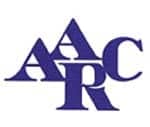The results from the Phase I BLOOM clinical trial reveals that AZD9291 offers “encouraging activity” in heavily pretreated non-small cell lung cancer patients with leptomeningeal disease.
A total of 13 heavily pretreated NSCLC patients were enrolled in this Phase I clinical trial. Prior therapies for these patients include EGFR-TKIs drug in 10 patients and radiotherapy to the brain in seven patients. AZD9291 at 160mg was administrated to the patients once a day until disease progression, at which point treatment continued at the investigator’s discretion. Among the patients, 11 were examined for response using mainly brain MRI imaging.
“There is no standardized way to measure response of leptomeningeal disease to therapy, but a combination of clearing cancer cells from the fluid surrounding the brain (CSF cytology), changes on brain MRI imaging, and improvement in neurologic symptoms is likely to be the best composite endpoint to assess clinical benefit,” said Dae Ho Lee, MD, PhD, associate professor in the Department of Oncology in the University of Ulsan College of Medicine and Asan Medical Center, Seoul, Korea.
The results suggested improvement observed in brain imaging in six patients, and three out of seven patients with previous abnormal neurological exams displayed improvement. Clearance of cancer cells from the CSF was proved in one patient, but unconfirmed in four other patients. Also, available pre- and post-treatment CSF samples showed significant reduction in DNA mutation of EGFR receptor in eight out of nine patients, with the reduction exceeding 50% in five patients.










